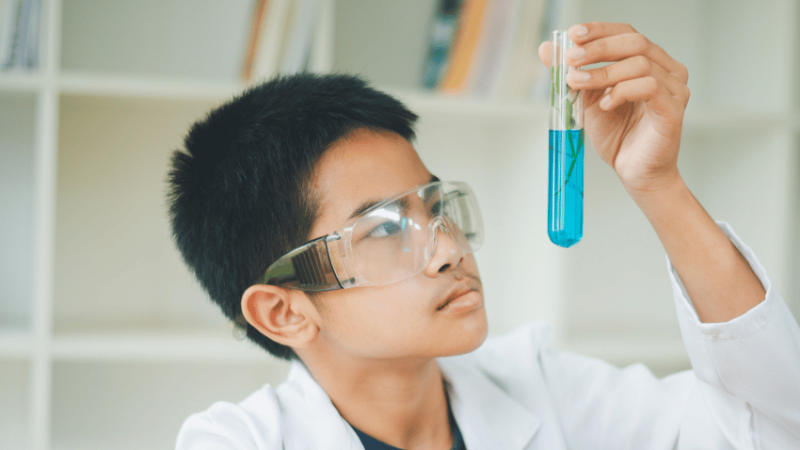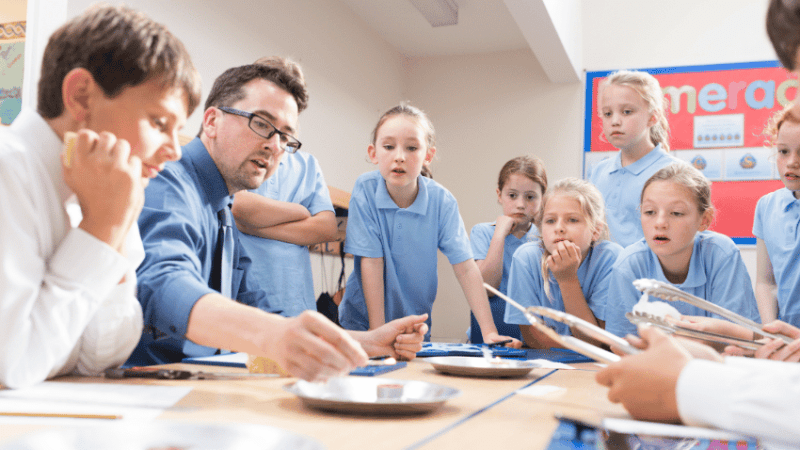14 of the best chemistry lesson plans for KS3/4 science
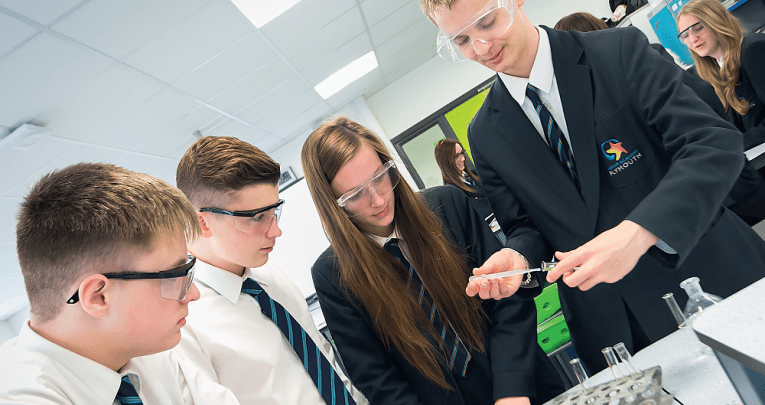
Explore everything from crystallisation to the ethics of drug testing and doping, and explore perfumes, oils, dyes and much more

- by Teachwire
- Classroom expertise and free resources for teachers
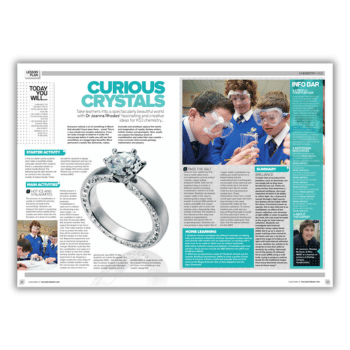
1 | Explore Crystallization By Making Your Own Crystals
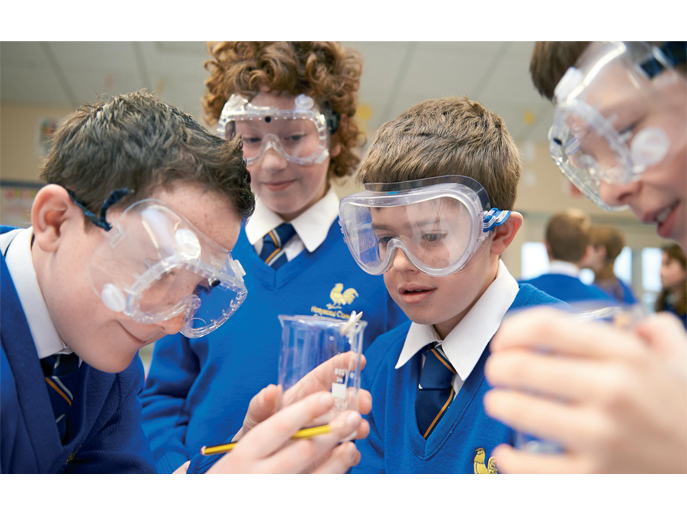
Everyone noticed a lot of something in March that shouldn’t have been there… snow! This is a very simple but complex substance. If you are lucky enough to observe it under the microscope before it melts you will see that snowflakes are staggeringly beautiful.
More-permanent crystals like diamonds, rubies, emeralds and amethyst capture the hearts and imagination of royalty, fantasy writers, holistic healers and geologists.
In this lesson, pupils can explore the fabulous world of crystallization and make their own crystals – cross-curricular links include geology, mathematics and physics.
Click here to get this free lesson plan.
2 | Get Hands-On with Chemistry by Experimenting with Potions, Cauldrons and Colourful Reactions
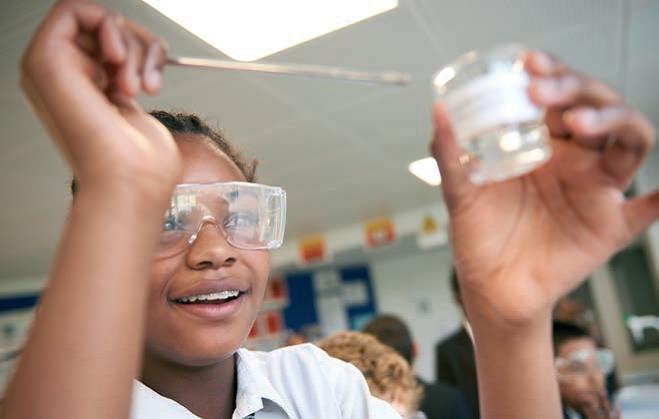
Dr Joanna Rhodes looks at how pupils can engage with the joys of chemistry by getting involved in some hands-on experiments – involving potions, cauldrons, colourful reactions and more besides – while at the same time building their science vocabulary and exploring some cross-curricular links to biology.
Click here to get this free lesson plan.
3 | Have your Chemistry Class Explore how Elements of the Periodic Table were Discovered, Named and Organised
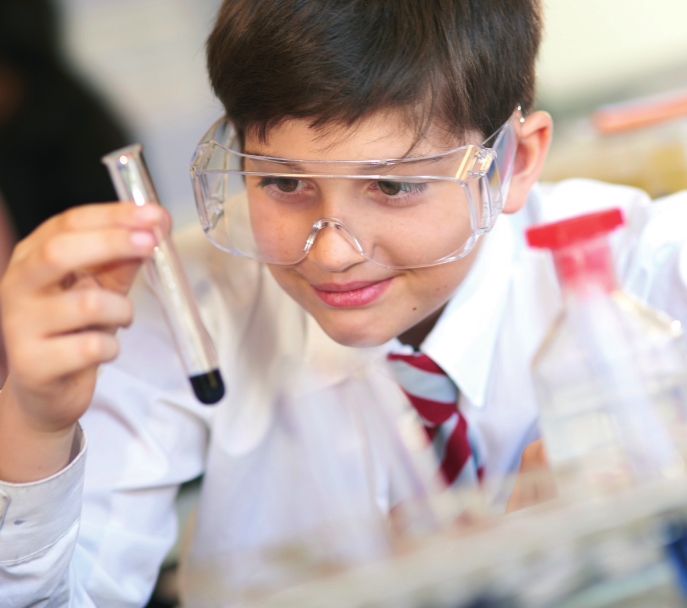
Taking its inspiration from the recent discovery of new elements in the periodic table, this lesson is intended to get your students thinking about about how elements have been discovered, named and organised according to rules set by the International Union of Pure and Applied Chemistry.
The students are then tasked with coming up with their own element names, and deducing the positions of various elements in the periodic table by investigating their properties. Finally, they contemplate whether we may have reached the ‘end’ of of the periodic table – and if not, what the implications would be if any new, heavier elements were to be discovered.
Click here to get this free lesson plan.
4 | Distil Your Own Perfumes And Experiment With Oils In Science Class

Try Dr Joanna Rhodes’ inspiring activities designed to increase students’ understanding of one of our planet’s most fascinating resources.
This lesson and supporting activities are dedicated to a type of substance that drives the world economy as well as being able to help you get to sleep when you have a cold. It is, of course, oil.
In its many varied forms from crude oil to fuels and vegetable oil to essential oils and perfume, this variously viscous substance provides a fascinating and multifarious topic with huge potential to thrill and excite students and with many opportunities for practical work.
Cross-curricular links exist with geography, politics and economics and health and beauty. There are also opportunities for social, moral, spiritual and cultural content to be explored, including awareness of the unique position of oil in world conflict, pollution, recycling and deforestation.
Click here to get this free lesson plan.
5 | Learn About Colour By Making Dyes And Performing Experiments
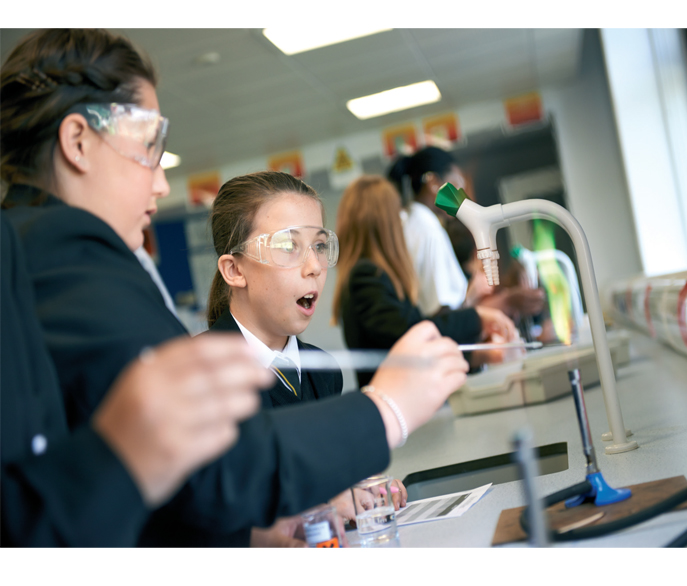
If we close the doors of a wardrobe, are the clothes still coloured? During this vibrant lesson, students will learn about why substances have colour and will create their own dyes, perform experiments with colorimetry and chromatography, and learn about how chemistry plays a huge role in the art world.
Students will learn about the heritage of colour in the UK chemical industry as well as developing strong cross-curricular links with art and history.
Click here to get this free lesson plan.
6 | Explore The Science Behind Cooking By Making Edible Treats
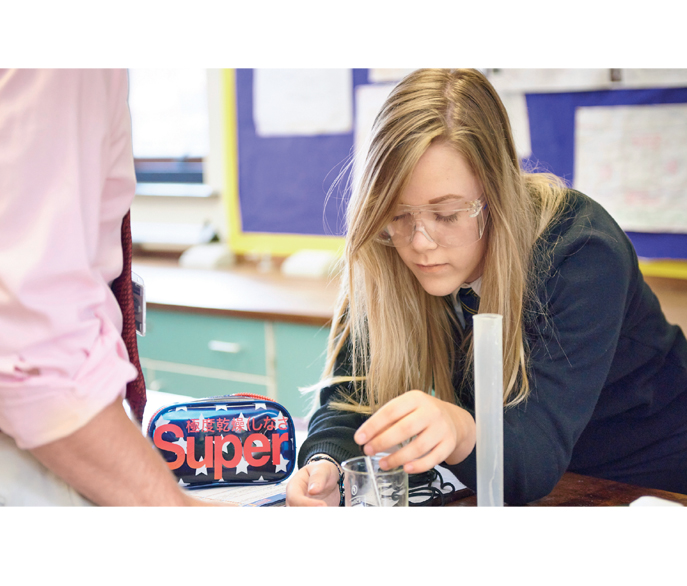
In this lesson students explore the science behind traditional cooking methods and make edible treats using their chemistry skills.
They also investigate methods of analysing foods employed by agencies such as the food standards agency and learn more about the colours, additives and preservatives that are designed to make our food attractive and give it a long shelf-life.
Click here to get this free lesson plan.
7 | Embrace The New GCSE Chemistry Specification With These Ideas
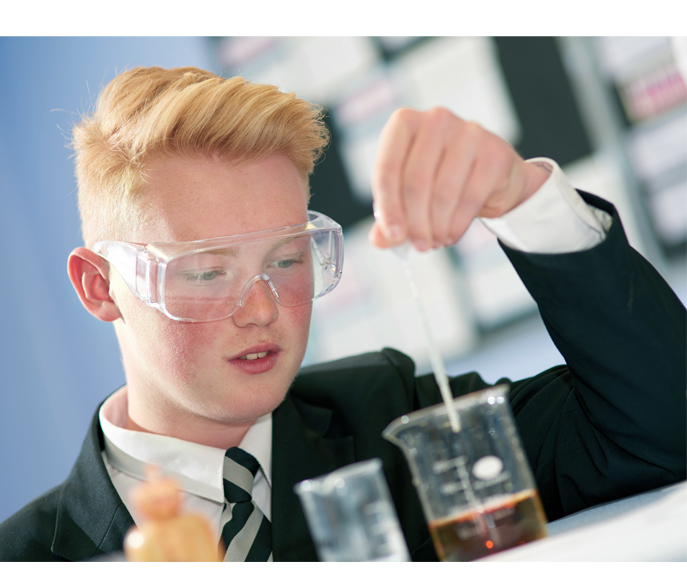
During this lesson students will complete a number of discrete activities which focus on the newest chemistry content from a range of examination boards at KS4. You could break up the activities, using them individually as they fit into the larger scheme of learning, or deliver them as a more intense experience suited for separate science taster lessons or as revision towards the end of the course.
Click here to get this free lesson plan.
8 | Get To Grips With The Periodic Table And See How Else We Might Group Elements
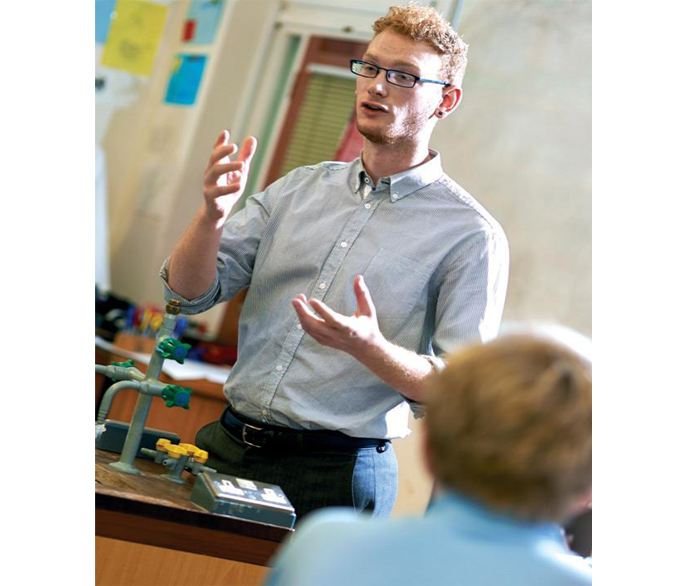
Explore the periodic table and use this KS4 lesson plan to offer a number of creative activities that will set children thinking about the properties of different elements. As well as working with the traditional periodic table, students will examine The Underground Map of elements produced by Mark Lorch.
Click here to get this free lesson plan.
9 | Show Students the Link Between Chemistry and Living Systems

Lego bricks, crisps and a bit of bling – they all come together in this superb lesson that helps students appreciate the strong connection between chemistry and its importance within living systems.
Click here to get this free lesson plan.
10 | Exploding Cornflour and Other Original Ideas to Explore Rate Of Reaction in Chemistry
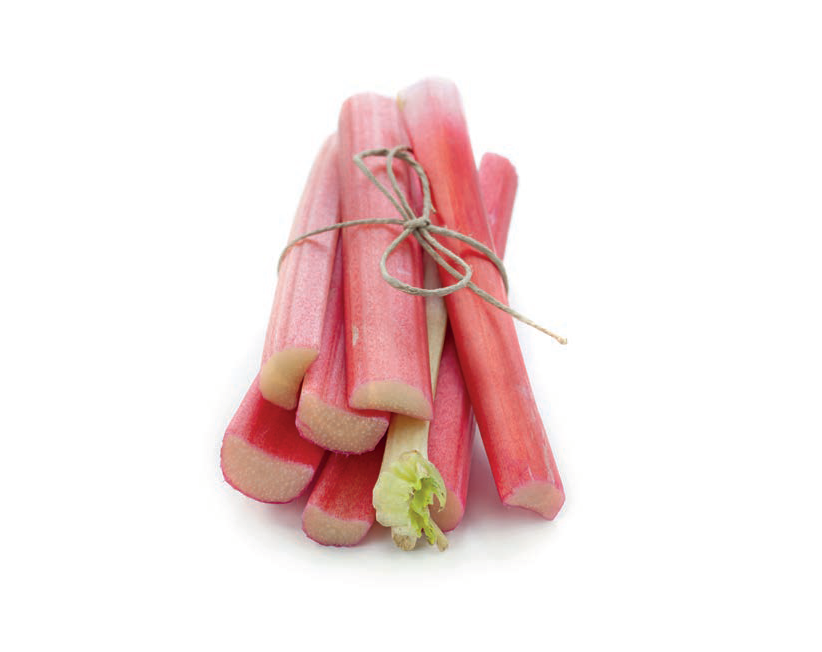
Rate of reaction is an important concept at KS4 chemistry that students can expect to need a thorough grasp of if planning to continue the subject at A Level. Here, Dr Joanna Rhodes presents a sequence of activities and practical experiments involving colour-changing rhubarb and gas syringes for exploring the concept further.
Click here to get this free lesson plan.
11 | How Can We Prove That An Athlete Is Doping?
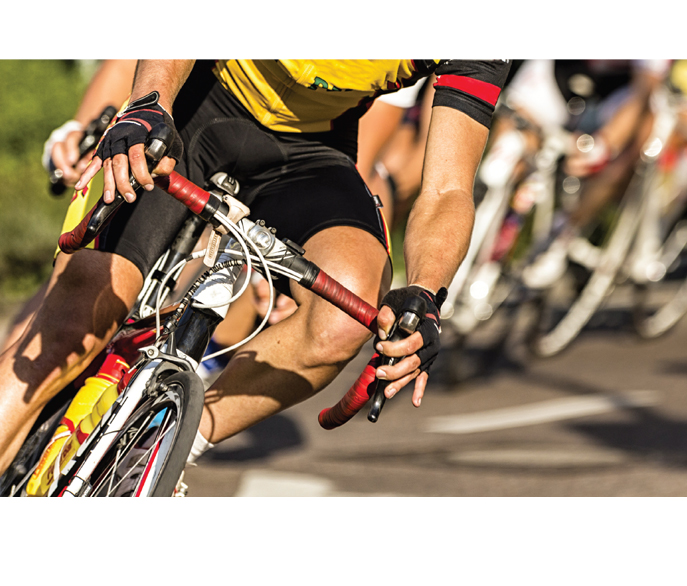
In this lesson students will investigate the biological factors that determine a person’s levels of fitness and will assess their own fitness levels using a range of stimulating physical activities with cross-curricular links to PE.
The lesson explores some of the techniques we use to determine the optimum personal best results for an individual athlete and explains how this data might provide evidence that an athlete is doping. Students will then explore some of the methods athletes might use to unfairly give them an advantage and how scientists are trying to remain one step ahead of the cheats.
Click here to get this free lesson plan.
12 | Explore The Ethics Of Testing Drugs On Animals And Humans
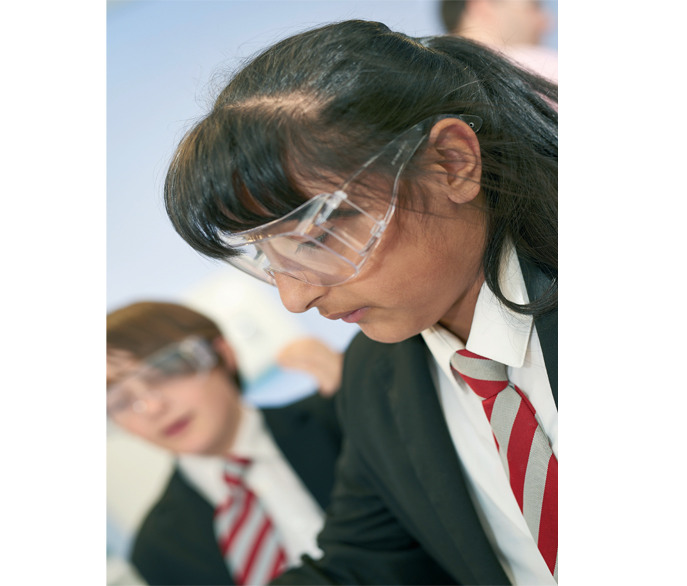
The final phase of drugs testing and clinical trials are human trials. But who takes part in these? Are they safe? Is there an alternative? Here, pupils will learn about the processes that a drug must undergo before it can be used to treat patients.
This lesson explores the ethics of testing on animals and humans, the need to exclude the placebo effect and the difficulties in making sure that the tests have identified all chance of harm. Throughout the lesson students are encouraged to form their own opinions and evaluate the evidence.
Click here to get this free lesson plan.
13 | Making Mole Calculations And Chemical Equations Accessible…With Bacon
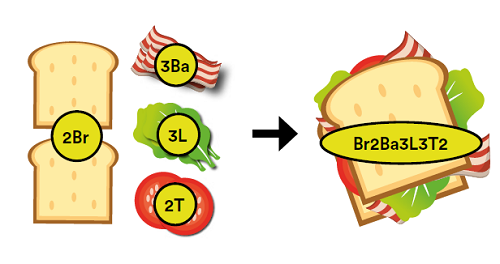
In this Key Stage 4 lesson plan you will use a visual approach to help students understand these advanced scientific concepts.
Teach mass, ratios and limiting reactants through the ingredients of a bacon, lettuce and tomato sandwich, use the ‘mole keyhole’ to help students understand which equation to use and when and give advanced learners an extension activity problem based around filling a balloon with various gasses (don’t worry, it’s a theoretical task, not a practical one).
Click here to get this free lesson plan.
14 | The Creative Chemistry Of Cosmetics
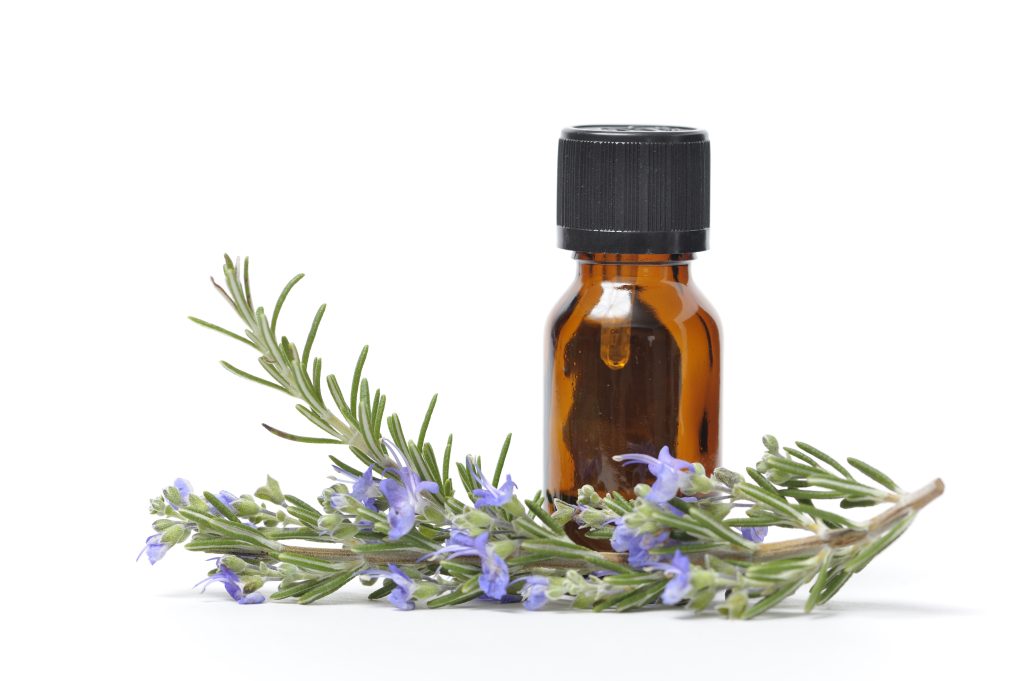
Exploring unexpected topics can reveal new enthusiasm for science – and scientific careers – amongst your students, and this lesson plan uses cosmetics and make-up as useful hooks to get more of them into chemistry.
Cosmetics and make-up, as a context, provides many links across the key stage 4 chemistry syllabus including nanoparticles, emulsions and bonding, and the lesson also encompasses media, ethics and the environment.





